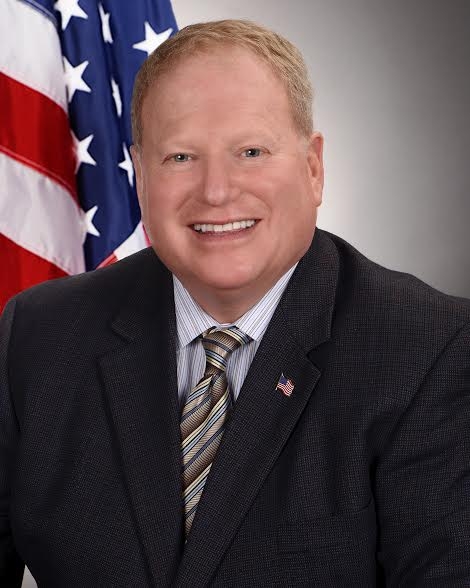Cites LI’s Transformation During WWII as Example of How to Restructure American Economy
While most of the political discourse on Long Island this election season has focused on hot topics like cutting taxes and cleaning up government waste and corruption, 2nd District Congressman Steve Israel had a very different set of topics in mind during his Oct. 17 appearance at Jericho Jewish Center: The safety and security of the state of Israel, and decreasing the United States’ dependence on foreign oil. While not everyone present seemed to agree with Israel’s contentions, at the very least, the congressman’s focus on international politics clearly resonated with the audience in the sanctuary that evening.
Early in his speech, Israel acknowledged his well-publicized disagreement with President Obama on the subject of Israeli-Palestinian negotiations, saying that he believes Obama should not be continually asking Israel to “negotiate against itself.”
“History shows us that every time Israel has entered into a negotiation on any issue- on any issue- Israel has not only negotiated in good faith but made painful concessions. And to expect Israel to negotiate against itself, while the Palestinian Authority sits it out, as they have for nine of the past ten months, I think is unacceptable,” said Israel.
On a more positive note, he reported that the state of the military intelligence relationship between the United States and Israel is “superb”, despite any political difficulties between the two countries. The congressman had just returned from a trip to Israel, where he said he had been briefed by Israeli intelligence and CIA station chiefs as part of his role on the House Select Intelligence Oversight Panel, and went on to talk about great improvements in radar that would allow potential missile threats from Iran to be taken care of over Iranian airspace, before they could reach Israel.
While he did not go into detail about this radar (he referred to it simply as “X-Band Radar,” which is a general term), he did say that he would be forced to speak in generalities as far as issues of military intelligence were concerned, due to some of the information being classified.
Speaking of threats from Iran, the congressman was also critical of the Bush administration for allowing Iran to advance their nuclear program. “If you judge the success of a nuclear program on how many centrifuges are spinning, on the first day of the Bush administration, fact: 0 centrifuges. On the last day of the Bush administration: 6,000. It was a failed policy; we allowed Iran to develop nuclear weapons over an eight year period,” said Israel.
However, he noted that the consensus of the international intelligence community seems to be that Iran’s nuclear program is in trouble. He cited The Iran Refined Petroleum Sanctions Act, which the congressman helped write, as an example of a U.S. action that is hurting the Iranian economy and stymieing their nuclear ambitions.
Still, the congressman was careful not to tar all Iranians with the same brush, pointing out that most Iranians were modern, and that some of the most pro-Israel (and pro-America) people in the Middle East live in Iran.
“The regime is dangerous; the regime is evil; Ahmadinejad is evil. But the people would fit very comfortably in our society,” said Israel. He also noted that there is a lot of discontent with the regime among the Iranian people, something he said could have only been exacerbated by Ahmadinejad’s recent need to raise taxes due to the sanctions.
The biggest topic of the night, however, was the congressman’s desire to decrease American dependence on foreign oil.
“We are compromised by our dependence on foreign oil,” Israel said simply, going on to say that even if one did not believe in global warming, ending the dependence on foreign oil would be beneficial because it would deprive countries like Iran of the means to fund terrorist organizations like Hezbollah.
“So here’s the defense paradigm of the United States, ladies and gentlemen: We are borrowing money from China to fund our defense budgets to buy oil from the Persian Gulf, to fuel our weapons systems to protect us from China and the Persian Gulf. You tell me how that makes sense; it is not sustainable,” Israel said.
In response to an audience question about how realistic it was that the U.S. would be able to re-structure its entire economy to remove foreign oil from the equation, Israel invoked the example of Long Island during World War II, stating that in response to a national security threat, Long Island had transformed quickly from farmland and residential neighborhoods to the defense capital of the country; later, he said, it became the aerospace capital of the country.
“NASA did not land a man on the moon, ladies and gentlemen; the Grumman corporation landed a man on the moon. Long Island landed a man on the moon,” said Israel, going on to say that the people who invented the lunar module could certainly learn to adopt clean technologies.
He also detailed his plan for ending dependence on foreign oil within four years, claiming that the problem with U.S. energy policy in the past 30 years has been the fact that return-on-investment had not been addressed. Israel’s plan entails state and local governments paying for improvements in energy efficiency, like the installation of solar panels, which homeowners would then pay back over the long term; the loan would also be tied to the property, meaning that if the house changed hands, the new owner would finish paying off the loan. He also said he supported virtually any other form of energy over “Arab oil”, including nuclear energy.
While Israel’s talk was primarily clear and plainspoken, he did engage in a little hyperbole on the subject of ending foreign oil dependence, the issue he says he spends the most time on: “You know why the lights are on here, at this synagogue? Because Ahmadinejad is generous enough to allow us to buy oil from the Persian Gulf,” Israel said.





























